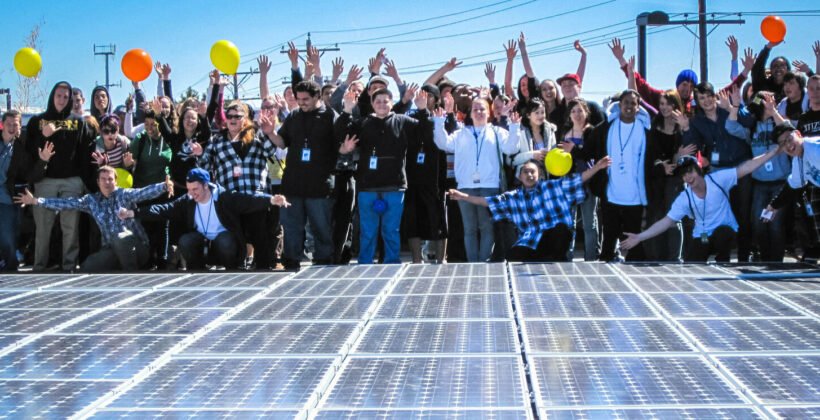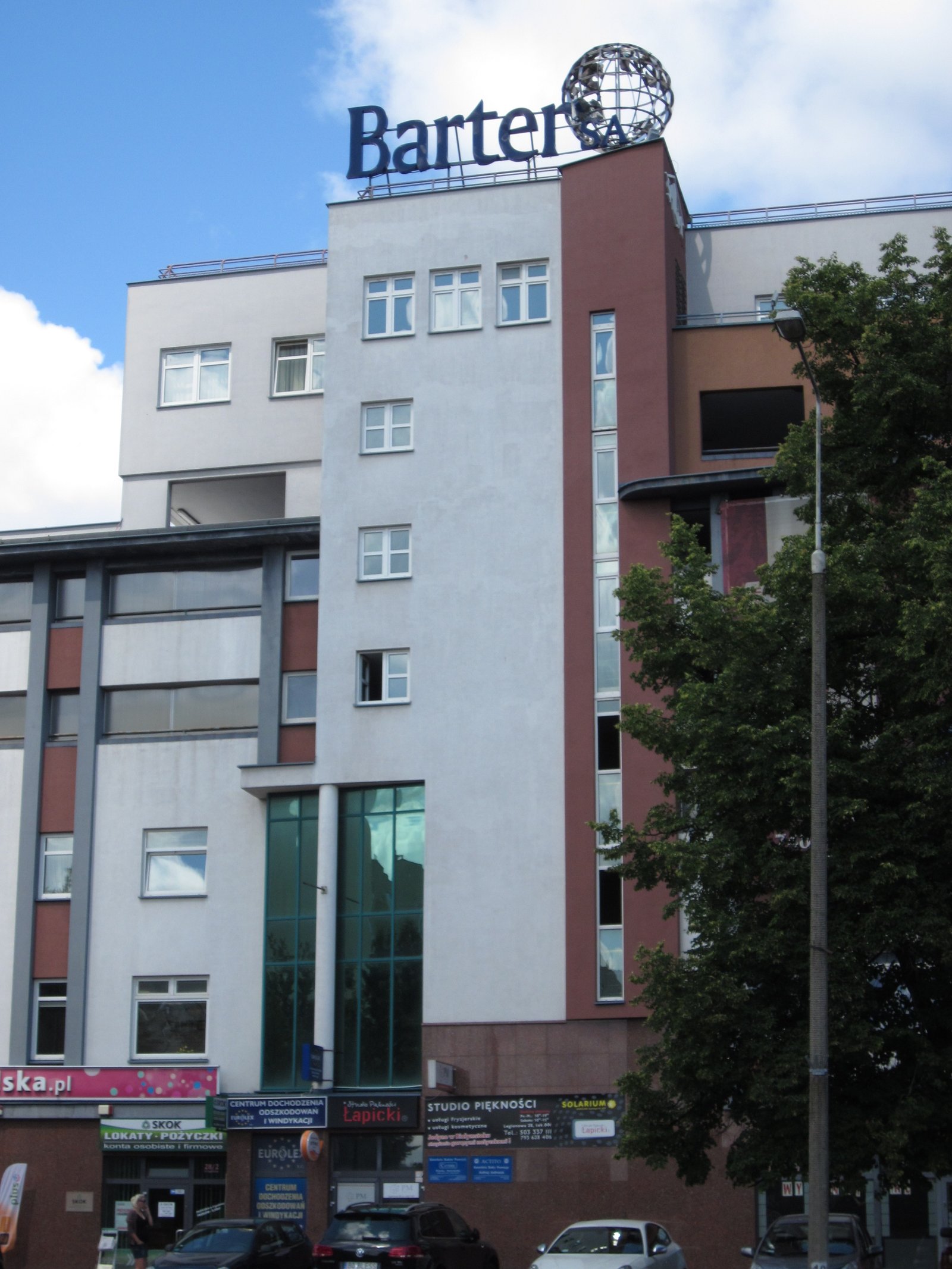Now Reading: The Importance of Bartering in Urban Survival
-
01
The Importance of Bartering in Urban Survival

The Importance of Bartering in Urban Survival
When concrete jungles become hostile and inhospitable, resourcefulness is key to survival. In the depths of urban chaos, where the reliance on modern conveniences falters, a forgotten yet potent skill emerges: the art of bartering. As a societal structure crumbles and traditional modes of exchange dwindle, urban dwellers find themselves needing to adapt rapidly to the new reality. Bartering, once a cornerstone of human interaction, resurfaces as a vital means of obtaining essential goods and services. Beyond its practical implications, bartering revives a spirit of community, trust, and self-sufficiency that cities are often accused of eroding. In this article, we will explore the intriguing resurgence of bartering in urban survival scenarios, shedding light on its importance and undeniable value for those navigating the challenges of an unpredictable world.
Table of Contents
- The Power of Bartering: Navigating Urban Survival Through Trade
- Transforming Goods into Value: Harnessing the Potential of Bartering in Urban Environments
- Building a Strong Community: Fostering Resilience and Interdependence through Bartering
- Practical Tips for Successful Urban Bartering and Survival
- Exploring Alternative Currency: The Role of Bartering in a Post-Apocalyptic Urban Landscape
- Q&A
- Insights and Conclusions

The Power of Bartering: Navigating Urban Survival Through Trade
Bartering has long been a powerful tool for navigating the complexities of urban survival. In a world where resources are often scarce, the act of trading goods and services has become an essential means of obtaining what we need to thrive. Whether it’s a loaf of bread in exchange for a hand-knitted scarf or a plumbing repair in return for fresh produce, bartering not only satisfies immediate needs but also fosters a sense of community and resourcefulness.
In an urban setting, the power of bartering lies in its ability to tap into the diverse pool of skills and talents that city dwellers possess. From the artist who can paint a beautiful mural in exchange for a week’s worth of groceries to the computer programmer who can fix your laptop in return for a bicycle repair, the possibilities for trade are endless. This symbiotic exchange not only allows individuals to meet their immediate needs but also creates a network of mutual support and cooperation.
Benefits of bartering in urban survival:
- Resourcefulness: Bartering promotes innovative thinking and resourcefulness by encouraging individuals to identify and utilize their unique skills and assets.
- Community building: Through bartering, urban communities can come together, fostering strong relationships and a sense of belonging.
- Diversifying resources: Bartering allows individuals to access a wider range of goods and services that may not be readily available through traditional means.
- Sustainability: By promoting the exchange of goods and services, bartering reduces the reliance on monetary systems and contributes to a more sustainable and self-sufficient urban environment.
The power of bartering is undeniable, as it not only provides a means of survival but also strengthens the fabric of urban societies. By embracing the principle of “one person’s trash is another person’s treasure,” we can navigate the challenges of urban living with resilience and unity.

Transforming Goods into Value: Harnessing the Potential of Bartering in Urban Environments
In the hustle and bustle of urban life, it’s easy for us to overlook the potential value that lies within our unused possessions. Bartering, a centuries-old practice that has been revitalized in modern times, offers an innovative approach to transform goods into tangible value.
This age-old concept is gaining momentum in urban environments as people realize that they can meet their needs without relying solely on money. Whether it’s swapping a bicycle for a guitar, trading a skill for a service, or exchanging homemade crafts for fresh produce, bartering fosters a sense of community and resourcefulness.
By embracing bartering, we tap into the potential of our possessions, transforming them from mere objects into valuable commodities. This exchange not only promotes sustainability by reducing waste but also builds connections and shared experiences among individuals.
- New connections: Bartering allows individuals to connect with like-minded people who share their interests and passions, creating a sense of camaraderie and fostering new relationships.
- Resourcefulness: In an era of mass consumerism, bartering encourages us to think creatively about the value of what we already possess, promoting a more sustainable and mindful approach to consumption.
- Building trust: Engaging in bartering requires trust and integrity, strengthening the social fabric of communities by cultivating relationships built on mutual support and shared interests.
As urban dwellers, we have a unique opportunity to unlock the hidden potential of our belongings and emphasize the value they hold beyond monetary worth. Through bartering, we can foster a sense of connection, resourcefulness, and trust within our urban environments, transforming our goods and ourselves in the process.

Building a Strong Community: Fostering Resilience and Interdependence through Bartering
In today’s fast-paced and individualistic society, building a strong community seems like a daunting task. However, fostering resilience and interdependence through bartering can be a powerful way to reconnect and strengthen the bonds within a neighborhood.
Bartering, an age-old practice, brings people together through the exchange of goods and services without the use of money. By engaging in barter, community members not only save money but also establish a sense of trust and reliance on one another. This form of trade encourages a more sustainable lifestyle as it reduces waste and promotes the reuse of resources.
Bartering also enhances the social fabric of a community, allowing individuals to connect on a deeper level. It provides an opportunity for people to share their skills and knowledge, fostering a sense of interdependence and supporting the growth of a collective expertise. Through bartering, neighbors can learn from each other, develop new talents, and expand their networks, ultimately creating a resilient community that can face challenges together.
- Rewards of bartering: Encourages self-sufficiency and resourcefulness, strengthens relationships, reduces waste, promotes sustainability.
- Tips for successful bartering: Communicate clearly and honestly, establish fair and equitable exchanges, respect individual skills and expertise, maintain open-mindedness and flexibility.
- How to initiate bartering in your community: Organize a bartering event, create an online platform for exchange, establish a neighborhood bartering network through social media or community bulletin boards.
Overall, bartering goes beyond the transactional exchange of goods; it cultivates a sense of support, solidarity, and interdependence within a community. By fostering resilience through bartering, we can build stronger and more connected neighborhoods, empowering individuals to rely on each other and creating a sustainable and thriving future for all.

Practical Tips for Successful Urban Bartering and Survival
In an urban environment where traditional systems may falter, mastering the art of bartering becomes crucial for survival. Here are some practical tips to ensure your success in the world of urban bartering:
- Build a diverse skillset: In a bartering economy, skills become currency. Invest time in developing a versatile skillset, whether it’s carpentry, gardening, or sewing. The more you can offer, the greater your bargaining power.
- Identify valuable commodities: Bartering is all about exchanging goods and services for what you need. Keep an eye on items that are highly sought after, such as non-perishable food, medical supplies, and tools. These commodities can be invaluable for securing essential items during trade negotiations.
- Cultivate a network: Establish connections within your community or urban setting. A strong network of individuals with different skillsets and resources can create a valuable support system. Collaborating with others can not only enhance your ability to barter successfully but also improve your chances of survival in challenging times.
- Practice negotiation: Negotiation skills are essential to thrive in the world of bartering. Be confident, clear, and flexible when communicating your needs and offerings. Understanding the worth of your goods and services is crucial to striking fair deals that benefit both parties involved.
- Adaptability is key: Cities are ever-evolving environments. Stay adaptable and open-minded to new bartering opportunities and creative solutions. Adapting to changing circumstances enables you to navigate the urban landscape effectively and maximize your chances of success.
Remember, urban bartering and survival demand resourcefulness and a willingness to adapt. By embracing these practical tips, you’ll be better equipped to navigate the challenges and uncertainties of an urban environment.
Exploring Alternative Currency: The Role of Bartering in a Post-Apocalyptic Urban Landscape
In a post-apocalyptic urban landscape, where traditional forms of currency have lost their value, an alternative form of exchange known as bartering has emerged as a key element in the survival of communities. Bartering, the act of trading goods or services directly without the use of money, showcases the resourcefulness and adaptability of humanity in the face of adversity.
One of the advantages of bartering is its ability to facilitate a diverse range of transactions. From food and water to medical supplies and survival tools, almost anything can become a valuable commodity in this new world. Bartering allows individuals to leverage their skills and possessions to obtain necessary items they may lack, fostering a sense of interdependence and cooperation.
Furthermore, bartering stimulates creativity and innovation as people discover new ways to meet their needs. The absence of a traditional currency system opens up possibilities for unique exchanges, where a can of beans may be traded for a sewing kit or a homemade candle for a pair of warm socks. This dynamic environment encourages individuals to think outside the box and utilize their skills and resources in unconventional ways.
As society rebuilds itself amidst the challenges of a post-apocalyptic world, bartering serves as a testament to the resilience and adaptability of human beings. By embracing alternative forms of currency, communities find ways to sustain themselves when traditional systems fail. In this new era, the value of goods and services lies not in the digits on a bank statement, but in the creativity, resourcefulness, and collaborative spirit of individuals coming together to support one another.
Q&A
Why is bartering important in urban survival?
Bartering is crucial during urban survival as it allows individuals to acquire necessary goods and services without relying on traditional currency. It fosters community relationships, promotes resourcefulness, and helps overcome shortages in emergency situations.
What are the benefits of bartering over using money during urban survival?
Bartering eliminates the need for currency in a crisis, ensuring that individuals can still obtain essential items. It encourages creativity, problem-solving, and promotes self-sufficiency within communities, as individuals must use their skills and resources to acquire what they need.
What kinds of items are commonly bartered during urban survival?
In urban survival scenarios, items that are often bartered include food, water, medical supplies, tools, clothing, and other basic necessities. Additionally, skills and services, such as carpentry, plumbing, gardening, or even teaching, can also be mutually exchanged.
How does bartering contribute to community building during urban survival?
Bartering creates a sense of interdependence and cooperation within communities, fostering closer relationships among individuals. It promotes a sharing mindset, helps build trust, and encourages people to look out for one another by exchanging resources and favors.
What are some tips for successful bartering in an urban survival situation?
To successfully barter during urban survival, it is important to assess needs and resources, establish fair trade values, and communicate effectively. Building a network of trustworthy individuals, being open to negotiation, and respecting the value of items and services exchanged are vital for successful bartering.
Are there any potential risks or drawbacks to bartering in urban survival?
While bartering can be an effective survival strategy, it may also lead to conflicts or exploitation if not conducted responsibly. Unequal trades, disputes over value, or dependence on bartered goods can potentially strain relationships within a community. Hence, open communication and fair exchange practices are crucial to avoid drawbacks.
Insights and Conclusions
In a world where urban survival has become a constant concern, one often wonders if the art of bartering has any relevance in modern-day society. But within the concrete jungle lies a hidden treasure, waiting to be rediscovered and embraced by those who are wise enough to recognize its significance. Bartering, in all its simplicity, holds the key to unlocking a network of possibilities, empowering individuals to thrive in an urban landscape where adaptability and resourcefulness reign supreme.
As we journeyed through the labyrinthine alleys of urban survival, we uncovered the untold stories of those who have embraced the power of barter. From the bustling streets of metropolitan cities to the forgotten corners of urban neighborhoods, we saw a revival of ancient traditions taking place. A vibrant tapestry of exchanges unfolded before our eyes, revealing a thriving underground economy that defied the constraints of modern currency.
Imagine this: a world where grocery lists transform into a network of skilled artisans and farmers trading their bounties for other essential goods. A realm where neighborly bonds are forged through mutual trade, where the value of an item transcends its monetary worth. In this age of unprecedented challenges, bartering reintroduces a sense of community and connectivity, weaving together the threads of survival in its truest form.
In this bustling metropolis of demands and scarcities, bartering has emerged as a testament to humanity’s innate ability to adapt and overcome. Relationships are forged, trust is fostered, and dependence on external systems is beautifully dismantled. The simplicity of bartering forces us to strip away the excesses of consumerism, connecting us deeply with the essentials needed to thrive in the urban jungle.
While the world races to uncover the latest technological breakthroughs, it is crucial not to overlook the timeless wisdom inherent in bartering. From rekindling forgotten hobbies to sharing knowledge and skillsets, bartering transcends the mere exchange of goods, replacing it with a deeper sense of purpose and fulfillment.
So, as we bring this exploration of bartering to a close, let us not underestimate its power as a lifeline in urban survival. It is a call to shake off the shackles of materialism and embrace the true essence of human interaction. Within the unpredictable landscapes of our cities, bartering is not just primitive; it is primordial, reminding us of our shared history and the interconnectedness of our collective survival.
Remember, in the world of urban survival, where hard-knocking realities reign, the art of bartering represents an irreplaceable tool in our arsenal. Let us not forget the value of trade, for it carries with it the potential to bridge gaps, build communities, and ultimately safeguard our well-being in the face of adversity. So, fellow city dwellers, let us embrace the importance of bartering, for it is not just a means of survival, but a timeless dance of resilience, resourcefulness, and the ever-winding path of human ingenuity.
As an affiliate, my content may feature links to products I personally use and recommend. By taking action, like subscribing or making a purchase, you’ll be supporting my work and fueling my taco cravings at the same time. Win-win, right?
Want to read more? Check out our Affiliate Disclosure page.





